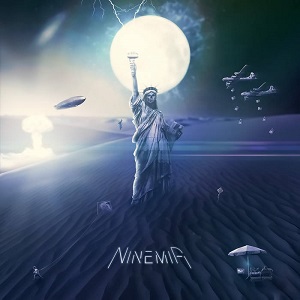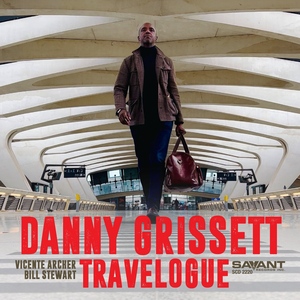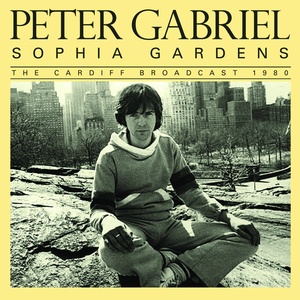Dozens of new albums arrive at Maxazine’s editorial staff every week. There are too many to listen to, let alone review. This ensures that too many albums are left behind, and that’s a shame. That is why today, we post an overview of albums that arrive at the editors in short reviews.
Photo (c) Jorge Fakhouri Filho
NinémiA – Weapons of Math Destruction
What do you get when you bring together musicians from Cyprus, Poland, Belarus and a drummer from Megadeth? The debut album “Weapons of Math Destruction” by NinémiA, and what a ride it is. Christos Agathokléous, the Cypriot brain behind this strong project, has created something special here. From the opener, “Psychotropic Plague,” you immediately know you’re in for something heavy and uncompromising. Polish singer Mikolaj Krzaczek adds an interesting edge to the whole. His voice sometimes reminds one of the idiosyncratic Serj Tankian from System of a Down, which works surprisingly well with the band’s darker approach. But let’s talk about those drums. Dirk Verbeuren (Megadeth) is razor-sharp on all ten tracks. His playing is absurdly tight, whether he’s pounding through the four-minute “Same Old Story (S.O.S)” or solidly anchoring the eleven-minute, instrumental title track. Derek Sherinian’s keyboard parts on “The Acquired Savant” provide a welcome extra layer, while songs like “Oppenheimer” make it clear that the band doesn’t shy away from heavier themes. With a runtime of 70 minutes, this is quite a sit, but thanks to the variation it remains engaging. This international collaboration works. “Weapons of Math Destruction” hits hard and leaves you hungry for more. (Norman van den Wildenberg) (9/10) (Nimenia Records)
Danny Grisset – Travelogue
American pianist and composer Danny Grisset is one of the most sought-after musicians in modern jazz, having made a substantial number of flights alongside various big names for twenty years. Yet his solo career, which Grisset has been building since 2006, just won’t take off internationally. That’s strange. Put on this “Travelogue” and be surprised again by the energetic, flowing playing and especially the brilliant sense of rhythm and timing. Accompanied by drummer Bill Stewart and bassist Vicente Archer, Grisset brings ten primarily original compositions as a reflection on the life of a travelling jazz artist. Every frequent traveller, who takes ‘flight hours’ quite literally, will recognise it: the moments of rest once you’ve arrived at your destination (“Whisper Not”), contrasted against the inevitable hectic nature of travel itself. And always the feeling of being on the road, missing home (“The Long Way Home”), without feeling lonely in yet another big city (“The People in the City”). Nevertheless, we occasionally feel homesick and lose ourselves in sombre thoughts (“Here’s That Rainy Day”), but there’s always another trip we look forward to (“Spin Cycle”). It all comes back in the ten tracks on “Travelogue”. Grisset perfectly manages to create an atmosphere in the classic jazz format of piano, bass and drums. A classic format that travels everywhere and fits in anywhere. (Jeroen Mulder) (8/10) (Savant Records)
Peter Gabriel – Sophia Gardens
More than forty years after the original concert, Yard Stick has finally officially released Peter Gabriel’s performance at Cardiff’s Sophia Gardens Pavilion on streaming services. Unfortunately, they should have left this unreleased. What once circulated as a bootleg among collectors proves in official form to still be an auditory ordeal. The sound quality is downright abominable – a combination of scratchy mono recordings and dusty stereo tracks that resemble a clandestine cassette recorder more than a professional radio broadcast. Gabriel’s voice regularly drowns in the muddy mix, while the instruments sound as if they’re being played through a pillow. Historically speaking, this recording is interesting. The concert took place shortly before the release of his groundbreaking “Melt” album and contains early versions of later classics like “We Do What We’re Told (Milgram’s 37)”. For the true Gabriel devotee, this is now finally accessible via streaming services. Yet the question remains: was this necessary? Some treasures are better left buried, and this recording could have peacefully remained in the bootleg underworld where it belonged. (Jan Vranken) (5/10) (Yard Stick)
Becca Wilkins – Rêverie
They are probably Charles Aznavour’s two best-known songs: “La Bohème” and “Emmenez-moi”. Not to mention that these are true monuments that must be handled very carefully. As with all French chansons, it’s primarily about the lyrics and how you deliver them; the music is essentially subordinate to the words. London-born singer Becca Wilkins ventures on “Rêverie” to interpret not only Aznavour, but also Brel, Piaf, and Montand appear in new jazz interpretations. A Brit singing chansons? No problem: Wilkins partly grew up in Normandy and mastered the language; there’s therefore nothing to fault in her French pronunciation. On this CD, we must mainly discuss the arrangements. In the originals, these are often kept sober to give the lyrics as much space and therefore power as possible. How different are the rich arrangements with which Wilkins presents these poems? The singer is accompanied by a trio that pours a delicious jazz sauce over the chansons. For the first time since Aznavour, “Emmenez-moi” now gets under the skin again, thanks to the piano arrangement in the first part, the entry of bass and drums in the second part, suddenly giving it a ‘swing’, and then that beautiful voice of Wilkins. Or Brel’s “Amsterdam” where Wilkins is only accompanied by a drum beat that becomes increasingly louder, more compelling throughout the song. Pièce de résistance, to stay in the mood, is Piaf’s “Hymne à l’amour.” It’s the opening and closing of the album. In the opening, the arrangement deviates strongly from how La Môme once entrusted it to eternity, including changing keys, but in the second part, the closer, Wilkins stays close to the original. With Piaf, you can’t be careful enough. (Jeroen Mulder) (8/10) (Lamplight Social Records)
Yeule – Evangelic Girl is a Gun
Yeule, the musical project of Singaporean artist Nat Ćmiel, has developed over recent years into one of the most intriguing voices in experimental electronic music. After the acclaimed “softscars” (2023), yeule returns with “Evangelic Girl is a Gun”, an album that perfectly illustrates their artistic evolution. The album sounds exceptionally well-produced and presents an accessible, broad and well-defined modern sound that seamlessly weaves together glitch-pop, alt-rock and trip-hop. Yeule has created a sound here that is both experimental and commercially appealing, without compromising their artistic vision. An absolute highlight is “The Girl Who Sold Her Face”, a track with an irresistible groove that even has enough hit potential to reach the mainstream. Throughout the album, the spirit of early David Bowie hovers, both in feel and sound, that theatrical intensity and gender-fluid expression that made Bowie so iconic. With hypnotising melodies and a fascinating exploration of identity and transformation, “Evangelic Girl is a Gun” has become a very good album that further solidifies yeule’s position as an innovative force in contemporary pop music. (Jan Vranken) (8/10) (Ninja Tune)






